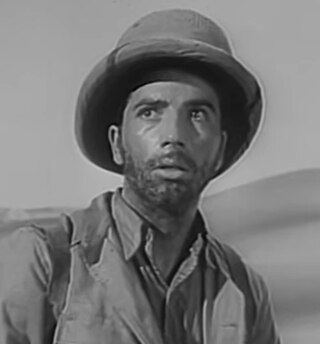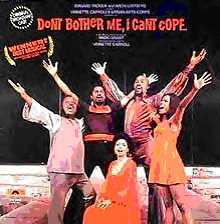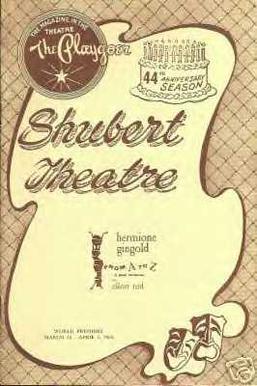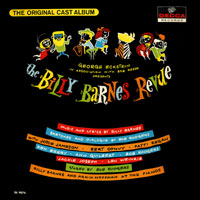Mary Rodgers was an American composer, screenwriter, and author. She wrote the novel Freaky Friday, which served as the basis of a 1976 film starring Jodie Foster, for which she wrote the screenplay, as well as three other versions. Her best-known musicals were Once Upon a Mattress and The Mad Show, and she contributed songs to Marlo Thomas' successful children's album Free to Be... You and Me.

Fred Ebb was an American musical theatre lyricist who had many successful collaborations with composer John Kander. The Kander and Ebb team frequently wrote for such performers as Liza Minnelli and Chita Rivera.

Jo Anne Worley is an American actress, comedian, and singer. Her work covers television, films, theater, game shows, talk shows, commercials, and cartoons. Worley is widely known for her work on the comedy-variety show Rowan & Martin's Laugh-In.

Bernard Whalen "Bert" Convy was an American actor, singer, game-show panelist, and host known for Tattletales, Super Password, and Win, Lose or Draw.

Ann Morgan Guilbert, sometimes credited as Ann Guilbert, was an American television and film actress and comedian who portrayed a number of roles from the 1950s on, most notably as Millie Helper in 61 episodes of the early 1960s sitcom The Dick Van Dyke Show, and later Yetta Rosenberg, Fran Fine's doddering grandmother, in 56 episodes of the 1990s sitcom The Nanny.

Kenneth Ronald Berry was an American actor, comedian, dancer, and singer. Berry starred on the television series F Troop (1965–1967), Mayberry R.F.D. (1968–1971) and Mama's Family (1983–1990). He also appeared on Broadway in The Billy Barnes Revue, headlined as George M. Cohan in the musical George M! and provided comic relief for the medical drama Dr. Kildare with Richard Chamberlain in the 1960s.

Ralph Meeker was an American film, stage, and television actor. He first rose to prominence for his roles in the Broadway productions of Mister Roberts (1948–1951) and Picnic (1953), the former of which earned him a Theatre World Award for his performance. In film, Meeker is known for his portrayal of Mike Hammer in Robert Aldrich's 1955 Kiss Me Deadly and as condemned infantryman Cpl. Philippe Paris in Stanley Kubrick’s Paths of Glory.

Blue Denim is a 1959 American drama film based on a Broadway play by writer James Leo Herlihy. It starred Carol Lynley and Warren Berlinger who reprised their stage roles. 17-year-old Brandon deWilde appeared in his first "adult" role as the male lead Arthur Bartley. Macdonald Carey, Marsha Hunt and Roberta Shore appear as supporting characters.
Billy Barnes was a composer, lyricist and actor from Los Angeles, California. Barnes may be best known for his theatrical revues and his recurring role as Mr. Edlin on the television series Mad About You.
Leonard Spigelgass was an American playwright, film producer and screenwriter. During his career, Spigelgass wrote the scripts for 11 Academy Award-winning films. He himself was nominated in 1950 for the story for Mystery Street and garnered three Writers Guild of America nominations over the course of his career. Spigelgass was also a friend of Gore Vidal who used Spigelgass as the model for Vidal's semi fictionary "wise hack" character in the latter's series of essays about Hollywood.

Don't Bother Me, I Can't Cope is a musical revue first staged in 1971 with music, lyrics and book by Micki Grant. It was originally produced by Edward Padula.

From A to Z is a musical revue with a book by Woody Allen, Herbert Farjeon, and Nina Warner Hook and songs by Jerry Herman, Fred Ebb, Mary Rodgers, Everett Sloane, Jay Thompson, Dickson Hughes, Jack Holmes, Paul Klein, Norman Martin, William Dyer, and Charles Zwar.
The Cabaret Concert Theatre was a small cellar café/cabaret, located in the Silverlake district of Central Los Angeles, California.

Joyce Jameson was an American actress, known for many television roles, including recurring guest appearances as Skippy, one of the "fun girls" in the 1960s television series The Andy Griffith Show as well as "the Blonde" in the Academy Award-winning The Apartment (1960).
Samuel Tecumseh Zolotow was an American theater reporter for The New York Times who was known for his tenacity in getting the details about how Broadway shows were performing, relentlessly pursuing producers, press agents and the crowds attending opening nights to get the details he needed for his stories and columns during his half century at the newspaper.
David Anthony Stuart Atkinson was a Canadian baritone and New York Broadway actor/singer. Most of his career was spent performing in musicals and operettas in New York City from the late 1940s through the early 1970s, although he did appear in some operas and made a few television appearances. In 1952 he created the role of Sam in the world premiere of Leonard Bernstein's Trouble in Tahiti. From 1956-1962 he was a leading performer at the New York City Opera where he starred in several musicals and appeared in the world premieres of several English language operas. His greatest success on the stage came late in his career: the role of Cervantes in Man of La Mancha which he portrayed in the original Broadway production, the 1968 national tour, and in the 1972 Broadway revival.
Love in E-Flat is a 1967 comedy play by Norman Krasna.

Billy Budd is a play by Louis O. Coxe and Robert H. Chapman based on Herman Melville's novella of the same name. Originally titled Uniform of Flesh, the play premiered Off-Broadway in 1949. Coxe and Chapman restructured and retitled the work for its Broadway debut in 1951. The revised version was a critical success, winning the Donaldson Award for Best First Play and the Outer Critics Circle Award for Best Play in 1951. In 1952 the play was adapted for the television anthology series Schlitz Playhouse of Stars, and Peter Ustinov adapted the play into a film which premiered in 1962.
The East 74th Street Theater, sometimes spelled as the East 74th Street Theatre, was an Off-Broadway theater at 334 East 74th Street in Manhattan in New York City in the United States.
Scott Jarvis was an American actor of stage and screen. He was mainly active as a musical theatre actor from the mid-1960s into the late 1980s. He is best remembered for creating the role of the Courier in the original Broadway production of Sherman Edwards and Peter Stone's musical 1776 in which he was critically acclaimed for his performance of the song "Momma Look Sharp".











